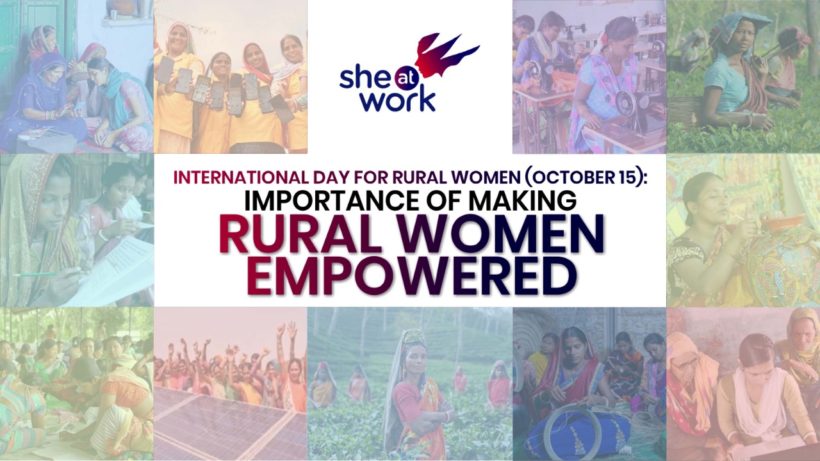Established by the UN General Assembly, this international day, recognizes “the critical role and contribution of rural women, including indigenous women, in enhancing agricultural and rural development, improving food security and eradicating rural poverty.” We can say with ease, when women are economically and socially empowered – they become a potent force for change.
In the developing countries, it is seen that in rural areas, women play a key role – in running their homes and making major contributions to agricultural production. But, the inequalities that exist between women and men make it difficult for women to fulfil their potential.
Rural women are torchbearers for social, economic and environment transformation for building ‘New India’. In India, Agriculture employs about 80 percent of rural women. And, empowering and rural women workforce in agriculture can bring about a paradigm shift towards economic growth.
Rural women play many roles, and they have responsibilities that differ from those of men. As farmers, they plant and harvest food crops and tend to livestock. As caretakers, they manage their homes, they cook meals, look after children and relatives and so on. Many women even earn extra income by working as wage labourers – involved in activities like – producing and selling vegetables, or engaging in small-scale trading and small enterprises. Added to these multiple tasks, they spend long hours fetching water and collecting firewood.
Women’s needs and rights must be addressed
Unfortunately, women rarely have access to the resources that would ease their workload and make their work more productive. Ultimately, it is not just women who are held back, but also the circle they are enveloped in – their families, their communities and local economies too. Women are disadvantaged by lack of education, unequal property rights and limited control over resources. Labour-intensive and time-consuming activities further hamper women’s ability to improve their income-earning potential. In order for poor communities to prosper and grow, women’s needs and rights must be addressed.
Women typically work 12 more hours per week than men in developing countries in Africa, Asia and the Pacific. In poor and marginal areas and areas affected by climate change, where men have been forced to migrate in search of work, women often have to bear the sole responsibility for farming and raising their children.
What can governments do to support rural women?
Countries can support rural households, especially rural women, to cope with high food prices by putting in place food assistance and social safety net programmes that take into consideration men and women’s different roles and responsibilities within households and the different behaviours they adopt.
So, by building programmes that take into consideration the differentiated needs and resources of rural women and men, governments can better strengthen rural communities’ resilience in the long run.










